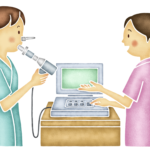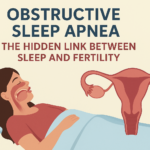By Dr.Manvir Bhatia/Ananya, Dated-1st June 2023
Toxic neuropathy is a condition in which toxic substances damage the nerves. It is a form of peripheral neuropathy. Thus, the nerves going to our hands and legs go are affected.
Common causes for toxicity are :
- Medical drugs.
- Drug or chemical abuse.
- Exposure to harmful industrial chemicals.
- Chemotherapy
- Alcohol abuse.
It is very important to know the cause of the neuropathy to deal with it. Once the doctors figure out the source of the nerve damage and remove it, the condition improves. Therefore, neurologists should consider screening for toxins that can cause this form of neuropathy. This should be based on the symptoms. It is important to be aware of the pattern of neuropathy associated with each type of toxin. Once they are clinically recognized, going ahead with the treatment and management becomes easier. This is also of great help to oncologists and hematologists as they can distinguish this from other similar diseases.
Mechanism of toxic neuropathy:
The mechanism of toxic neuropathy includes:
- Axonal degeneration
- The axonal transport is impaired.
- In some cases, the myelin sheath covering the nerves is damaged. This negatively affects the speed and effectiveness of the conduction of nerve impulses.
- Some chemicals also impair the mechanism of energy metabolism of peripheral neurons.
- Toxicity at the node of Ranvier, ion channels, and small nerve fibers.
Clinical symptoms of toxic neuropathy:
- Numbness, pain, or a tingling sensation in the feet.
- Difficulty in walking.
- Disturbances in autonomic and motor activities.
- Weakness
- Neuropathic pain
However, we should note that the symptoms of toxic neuropathy come up slowly at first and are not very obvious. With time, it gets more severe and then there is a need for clinical intervention.
Toxic Neuropathy and Sleep:
Patients with toxic neuropathy need to manage all their conditions like pain, tingling, etc. Along with this, they also have problems with sleep. They need to take a lot of care of sleep-related disturbances. They might feel that insomnia and other sleep-related issues are not very important issues. But, these conditions complement each other and become very severe if not taken care of simultaneously.
There are several ways in which neuropathy affects sleep. For example, some people experience hypersensitivity when touched particularly on the feet and legs. This makes it very difficult to fall asleep or to continue a good quality sleep.
In the daytime, a person is busy with many things such as work, family, friends, etc. So he does not focus much on the symptoms of neuropathy and the uneasiness it causes. As the night approaches, patients start focusing more on their pain. When they try to sleep, their perception of pain increases further. Thus, they are not able to sleep easily.
For some people, sleep deprivation aggravates the symptoms of neuropathy. They are anyways more susceptible to depression and eating disorders. Their level of physical activity decreases and it adversely affects their overall health. Lack of good quality sleep also lowers their pain threshold and it is very difficult to bear even slight pain. All of these compounded with neuropathy becomes a very vicious cycle.
Diagnosis of Toxic Neuropathy:
Treating any condition well is possible only when we diagnose it correctly and on time. For toxic neuropathy, the neurologist first asks for symptoms such as pain, muscle weakness, impaired reflexes, and numbness. Skin changes are also seen as a part of the toxic involvement and occ other systems such as the GI tract etc.
Blood and urine are tested to evaluate for the presence of toxic substances and to exclude underlying conditions like genetic defects, metabolic disorders, diabetes, vitamin deficiency, etc. that negatively impact the function of the nerves.
Using tests like electromyogram(EMG) and nerve conduction velocity they can differentiate the normal nerves from the damaged ones.
.
Treatment of Toxic Neuropathy:
Once we diagnose this condition and know the actual cause behind it, treating it becomes easier. For example, if it is due to vitamin deficiency, vitamin therapy helps. If excessive alcohol or some other drug is the reason behind it, totally avoiding it works best. If other underlying health conditions are the culprits, then managing those conditions well is the best option.
Surgical treatment is suggested for people suffering from nerve injury or nerve compression.
It is also advisable to use mobility aids like a wheelchair, walker, cane, etc. in case the nerve damage impairs the mobility of the individual. If the damage is very severe, people need to go for physiotherapy to get back their strength. To handle severe pain we use medicine such as pregabalin, duloxetine, etc.
Hence, we conclude that diagnosing toxic neuropathy at the early stages is very important. If the nerve damage is too severe, then handling this condition becomes very difficult. This is because the nerves have a very limited capacity to regenerate. Any further treatment will only hurt the progression but will not reverse the nerve damage.
It is also very important to note that we can avoid the onset of toxic neuropathy by maintaining sound mental health and a healthy lifestyle. We should eat a very nutritious diet, exercise regularly, and stay away from substances like alcohol and other recreational drugs. Being careful and conscious about what we eat, what we use, and how we choose to live also keeps us away from conditions like diabetes, cholesterol, etc. Also, as a society, it is our moral responsibility to spread awareness about these things and always support people who are already dealing with this condition.
References:
Smyth, D., Kramarz, C., Carr, A. S., Rossor, A. M., & Lunn, M. P. (2023). Toxic neuropathies: a practical approach. Practical Neurology, 23(2), 120-130.











